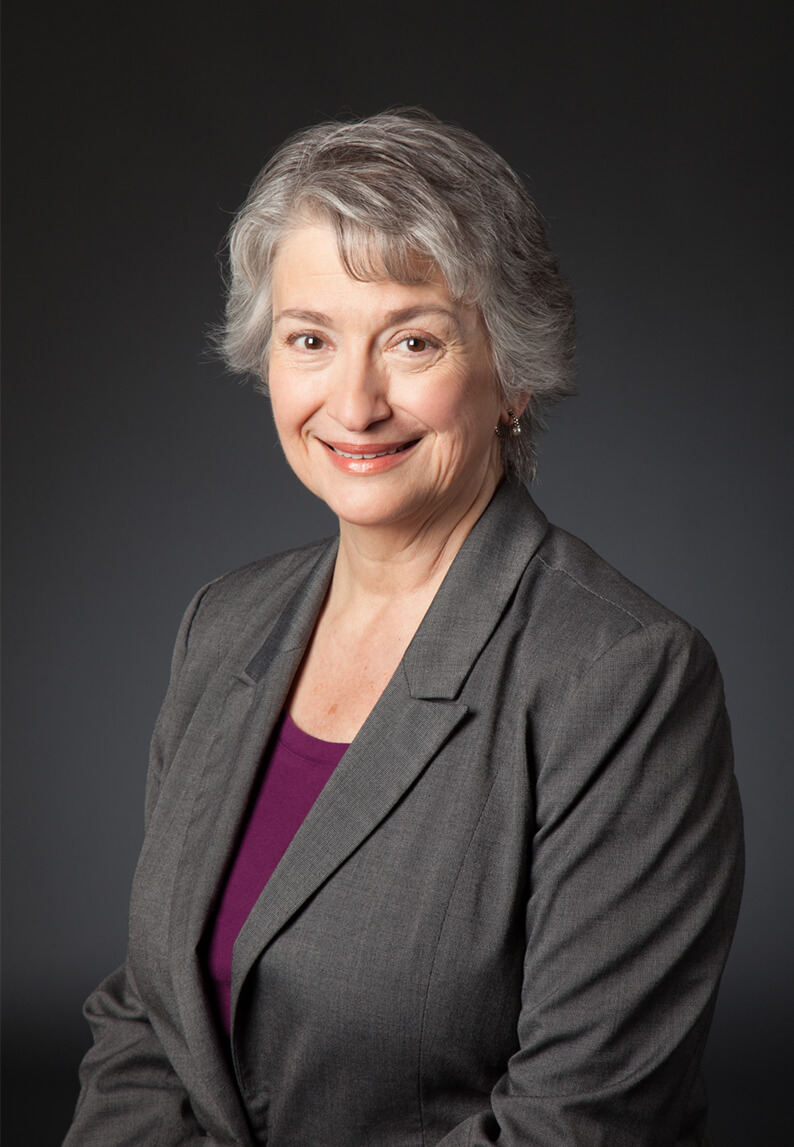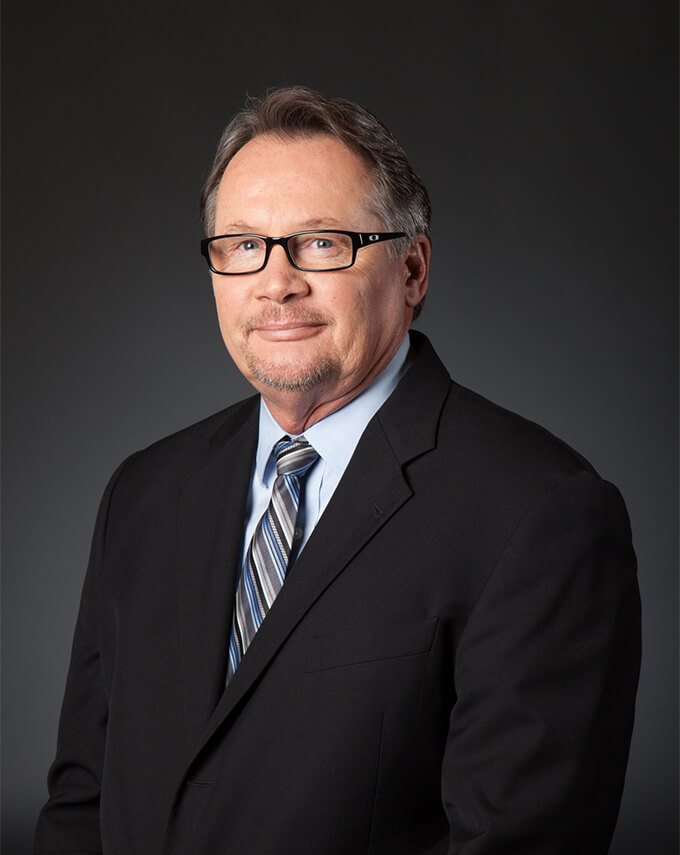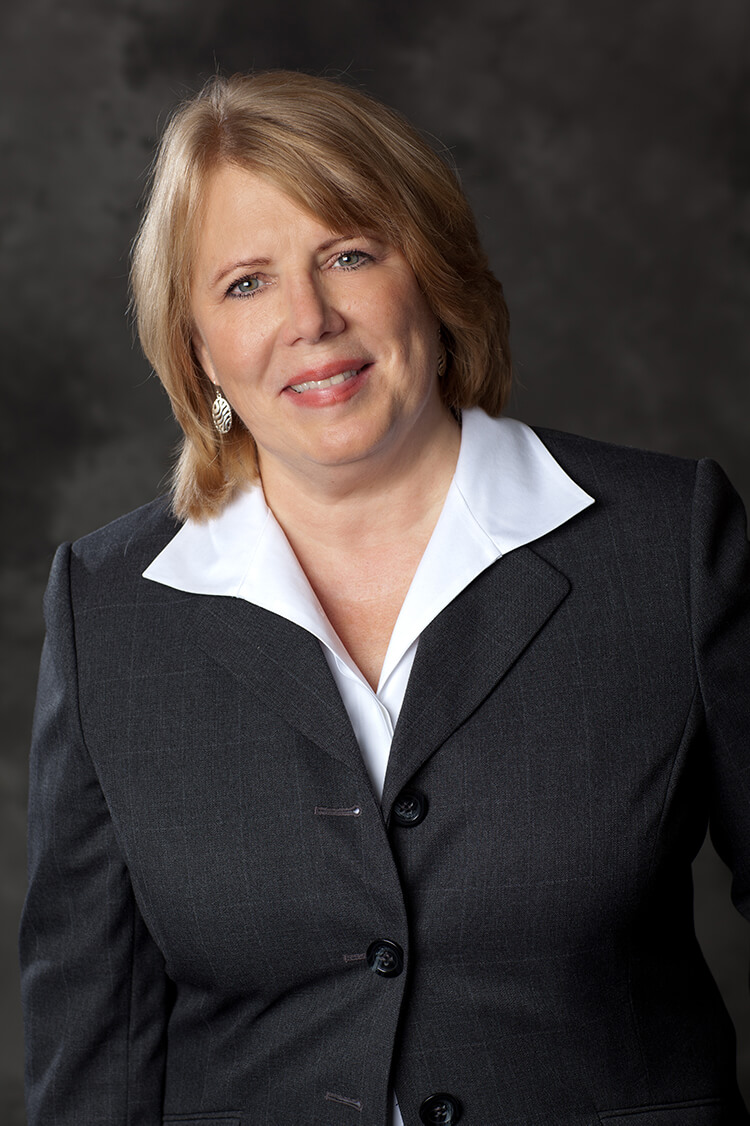Long-serving Leadership Staff Members Retire After Decades of Service
Linda Rock, David Murphy and Louise Yates do not have a building to their name, but their legacy is cemented at USC Viterbi.
“Take it to the Rock,” employees would say about Rock, former vice dean of administration, whenever they encountered a challenging problem.
Murphy’s name was often attached to university-wide initiatives that were dubbed “Murphy efforts” — not to be confused with Murphy’s law, something he worked to prevent as the school’s chief financial officer.
When a tough decision had to be made inside the dean’s “situation room,” it was Yates, senior associate dean of admissions, who reminded everyone, “It’s all about the students.”
For USC, they were tireless advocates and agents of change in complex times. For their staff and their superiors, they became pillars, mentors, family, with careers measured not in titles or accolades but in the lives they touched. Here are just a few of those testimonies.
![]()

Linda Rock
Vice dean for administration
Retired 2021 | 25 years at USC Viterbi
Linda Rock came to USC Viterbi in 1995 from Lockheed Aeronautical Systems to manage the school’s human resources office. The consummate diplomat, who earned her master’s degree in international policy from the Monterey Institute of International Studies, applied the principles of diplomacy gracefully in the world of academia.
A figure of empowerment and entrepreneurship, she advanced in her career to become a vice dean of administration, overseeing 388 staff, 470,000 square feet of space and an unrestricted annual budget, excluding external research, of about $250 million.
During her tenure, Rock supervised the renovation of 344,700 square feet of space at USC, at an expense of more than $113 million, the construction of the Michelson Center for Convergent Biosciences, and as a final legacy, helping USC Viterbi cross the finish line with the new Dr. Allen and Charlotte Ginsburg Human-Centered Computation Building. To her colleagues, Rock exuded openness and authenticity, a self-confidence that came from earned trust.
Dean Yortsos remembers meeting her in 1995 on the stairs of Parking Lot A — he was the department chair of chemical engineering and she was the incoming human resources manager. He wanted to introduce himself and give her an insider’s perspective. “But Linda already knew the people and the landscape,” Yortsos recalled. “She became a pillar of our school and remained so for decades, helping us move closer to our goal of engineering a better world for all humanity.”
“I’m not overstating things when I say that Linda Rock has been “the rock” of the USC Viterbi School of Engineering over her more than two decades in administration. I have seen firsthand the impact she has had on the school and its constituencies through her outstanding contributions, dedicated service and selfless sharing of expertise which exemplify the highest of ethics, integrity and values. She has represented engineering at USC in leadership roles including serving as a member of the University Club’s executive board for two consecutive two-year terms, in part as treasurer and as secretary. Linda has also played a defining role in the development of inclusive school policies and practices pertaining to staff, and has influenced inclusive policies and practices related to students and faculty. She has overseen the hiring of a significant fraction—if not vast majority—of our diverse staff. Likewise, she has overseen every substantial facilities improvement project in the school, including increasing accessibility for persons with disabilities. It is fair to say that no space or building within USC Viterbi has been left untouched by Linda’s hand. Without question, Linda has built a remarkable, celebrated legacy that will last in the hearts and minds of the USC community as well as in the very brick-and-mortar structures in which we carry out our daily work and activities. I am both delighted and extremely proud to have been among those who have had the distinct privilege of working closely, side-by-side, with her.”
— Timothy Pinkston
Vice Dean, Faculty Affairs
George Pfleger Chair in Electrical and Computer Engineering and Professor of Electrical and Computer Engineering
“Over the last decade, I’ve worked with Linda to manage the construction of the John O’Brien Nanofabrication Laboratory, our cell culture facility, and teaching laboratory, as well as the hiring and managing of technical support staff. Like most faculty, I was flying blind when I began these efforts, but Linda quickly became my guide. She is an endless fount of knowledge, and her love of USC Viterbi is contagious.”
— Dr. Andrea Armani
Ray Irani Chair in Chemical Engineering and Materials Science
“Over the course of my 16-year career at USC Viterbi, Linda gracefully and without hesitation guided me through the many ups and downs of my job. No question was too simple to ask, and her continued guidance and support, as well as her friendship, gave me the most important tools to succeed. To this day, when certain situations come up, I look back and lean on the knowledge she imparted to me. Her gift to communicate with confidence and empathy while looking out for everyone’s best interests is something that I also aspire to.”
— Marilee Reynolds
Director of Human Resources
![]()

David Murphy
CFO | Retired 2019 | 39 years at USC Viterbi
With a beat-up hand calculator and a poker face that comes from hard-won budgetary battles, David Murphy became the “financial memory of the institution.” When he retired in July 2019 after nearly four decades at USC Viterbi, he was the longest-serving chief financial officer in the 115-year history of the school.
“He knew a bit about every decision involving money that has occurred in the last 40 years,” said Linda Rock, whom he hired in 1995. He earned a reputation for being a patient problem-solver, good company on the golf course, someone who cared deeply for his colleagues and proved it more with action than words — and for being a fast driver.
Murphy is an old-school financial wizard. Without significant formal training in the field, he had a fundamental intuitive understanding of the school’s unrestricted budget, which at the end of his career had grown to more than $250 million. He mastered the myriad school accounts, from endowment to discretionary, with unparalleled skill and integrity. As a responsible CFO, he always planned for a rainy day scenario — one that arrived late but inevitably in the COVID-19 crisis. The school is better today, and in this COVID-19-induced maelstrom because of his careful handling of the school’s finances and his ability to always be ready for the unforeseen. The management of uncertainty and risk was an easy task for Murphy. And he handled all with the same dexterity as in his golf game or driving his red Mustang.
Dean Yannis Yortsos remembers Murphy offering to drive him to the airport one time in it. Yortsos was late to catch a flight, and Murphy gleefully stepped in. “He weaved through freeway traffic like nothing I’ve seen before, but he got me there safely and on time,” Yortsos said. The school administrators counted on Murphy to safely land the school’s budgetary plane year after year. While they came and went, he was the continuity.
“I have wonderful memories of my early years in the Engineering Financial Office where I worked directly for David. This was before the era of widespread home internet and the ability to dial in to one’s desktop. I would often come to work for a few hours on Saturdays along with my 3-year-old daughter. On many occasions we’d find David also there working, and playtime break would commence. At that time, the offices did not have carpet, and the long central hallway was ideal for pushing a small child in a rolling office chair (something we would never, ever do now!). David and my daughter would play for a while, and I would hear both of them squealing with laughter as he pushed her up and down the corridor, running up and down as she chased him. He would run some of her energy down (and his own, of course) while giving me some precious time to work. David also supported me through the long illnesses and deaths of my parents, and in the months that followed when my mind was not always present at work. He has been this way with everyone who works for and with him.”
— Linda Rock
Vice Dean for Administration
“David is an encyclopedia of our school’s financial history. And although he had the knowledge and foresight to make financial decisions quickly, he always took the time to clearly explain the how and the why of those decisions, rather than simply announcing them. This earned him the respect of the faculty who relied on him more and more to navigate changing, uncertain times. I remember how he always carried a handheld calculator to any meeting, giving him the ability to produce accurate numbers and estimates on the spot.”
— Alexander Sawchuck
Professor Emeritus of Electrical and Computer Engineering
“I first met David when I started as a student worker at the age of 17. Over the years, he provided support in many ways, sometimes directly but many times subtly, in ways that he didn’t even realize. One of our student worker tasks was running errands, and David would sometimes ask us to bring him back lunch. He always insisted on buying lunch for whoever was making the run. For a first-generation college student on a tight budget, this was welcome support. Toward the middle of my senior year, he recommended me for a full-time position and so began my career in research administration. When USC Viterbi obtained its first NSF Engineering Research Center, David was once again my corner recommending and encouraging me to take the position as the center’s chief financial officer. Whether it was through a meal, a recommendation or encouragement that came just in time, David was there.”
— Nichole Phillips
Director of Research Administration
![]()

Louise Yates
Senior associate dean for admission and student affairs
Retired 2019 | 41 years at USC Viterbi
Louise Yates started her USC engineering journey 40 years ago in the Student Affairs Office. It was 1980, the year John Lennon was shot, CNN went on air, and Post-it notes hit the shelves. What would become the USC Viterbi School of Engineering was simply the College of Engineering. Most of its graduates were white males, a mirror of the engineering profession at the time. Gradually, Yates began to redefine the Student Affairs Office to transform the student experience.
She created a number of programs and offices including K-12 outreach programs, the Engineering Freshman Academy, the Center for Engineering Diversity, the Career Connections Office, the merit research program, the alumni mentoring program and a number of study-abroad programs. The quality and composition of USC Viterbi undergraduates began to change dramatically. When her office relocated to the new Ronald Tutor Hall in 2004, it became the center of undergraduate student life at USC Viterbi. Meanwhile, Yates shuttled among high schools across the nation, recruiting the most diverse student body in the history of the school. By 2019, 50 percent of the entering engineering class was female. Building on former Associate Dean Clarke Howatt’s legacy, Yates built her own. In the process, she built lifelong ties with the thousands of undergraduate engineering students whom she helped recruit, mentor and see them to graduation.
Dean Yortsos vividly recalls that every year at commencement she would read the names, one by one, of all the graduating students, many of whom would stop and give her a goodbye embrace. It was the fitting epitome of the end of a remarkable journey of growth, from the freshman year to graduation. Yates’ office was our students’ home away from home. She also nurtured, in close partnership with Dean Yortsos, the Grand Challenges Scholars Program, a signature USC Viterbi program that helped changed the conversation about engineering, who we are, what we do and what we look like.
“With Louise it is ‘all about the students,’ no matter what. Louise’s approach to her work was pure dedication and relentless personal availability. Perhaps the most visible part of her work was in student recruiting. The composition of Viterbi’s undergraduate population is a testimony to her success. It was not by accident. In the fall, Louise would routinely work all day on campus and fly to the East Coast for recruiting receptions. She was up at 9 a.m. in NYC to meet with and interview prospective students and then represented Viterbi at a recruiting reception from 1 to 4. But Louise would not leave the meeting room until every student and every parent received attention — which usually meant staying until 6 p.m. Then she would fly to Boston at 9 p.m. to do the same thing all over again on Sunday. Louise’s work in advising and student services might not have been as visible to the larger university committee, but she approached it in the very same way. ‘You have a student interested in engineering? Give her my email address.’ ‘You want to set up a classroom visit for a prospective student? We’ll handle it.’ ‘An enrolled student is having trouble getting involved? Send him to me.’ And whenever I asked, ‘How in the world do you keep this up?’ the answer was always the same. ‘It’s all about the students.’”
— Dr. Katharine Harrington
Professor of Clinical Management and Organization, USC Marshall
“From the very start of my career at USC — which began in the USC Viterbi School of Engineering — Louise impressed me with her dedication to the university and its students. She was a tireless advocate for their wellness and success, always pushing the university to improve opportunities for students outside the lab and classroom. Practically every engineering student who earned a bachelor’s degree from USC over the last 40 years has benefited from programs, services and initiatives championed by Louise. USC Viterbi is a better place today because of her, and I have no doubt that her legacy and influence will be felt for years to come. As for me, I will always be grateful for how she inspired me to pursue my own career at USC and taught me multiple lessons that are as helpful and pertinent today as they were 25 years ago when we worked together in Olin Hall.”
— Timothy E. Brunold
USC Dean of Admission
“I met Louise Yates 35 years ago when I was a Viterbi student. She worked in the Student Affairs Office and I was an officer in the USC chapter of the National Society of Black Engineers (NSBE). Louise helped me learn the behind-the-scenes work of leadership. Years later, when I came back to work for USC, she showed me that our school could have a meaningful impact in the lives of minority children through the efforts of individuals. Twenty years later, Louise encouraged me to apply to become director of STEM Education Outreach Programs. What stands out the most in my long association with Louise is her commitment to students of color. Even though my role was working with K-12 students, on more than one occasion she asked me to mentor USC undergraduate and graduate students of color who were struggling. She felt that my personal story, love for USC and commitment to STEM education would benefit the students. In every instance it did. Recently, I had a conversation with one of those students who graduated from USC 15 years ago. The student said that I played an integral role in her success (which is substantial). Had it not been for Louise, I may not have been there for that student. She not only mentored students herself, but also called on those she mentored to pay it forward.”
— Dr. Darin Gray
K-12 STEM Center Co-Director, USC Viterbi



